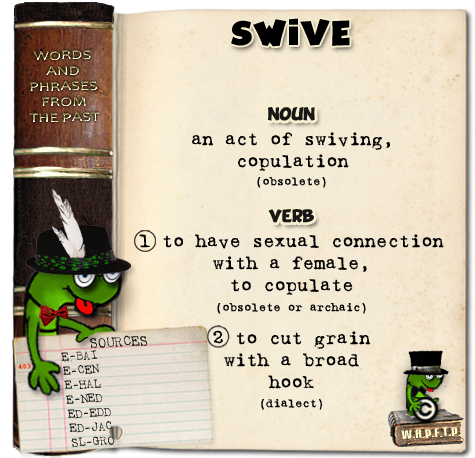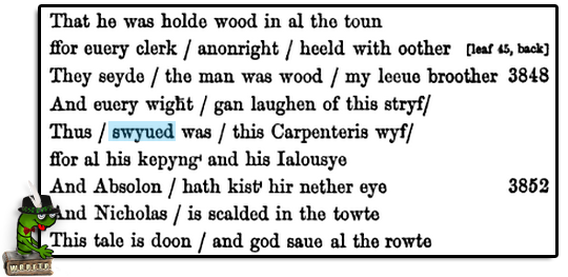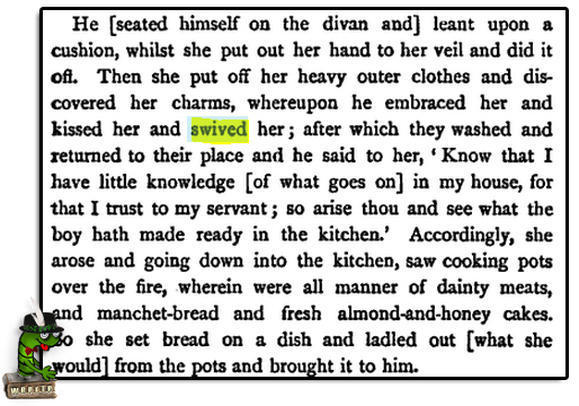|
From E-NED: apparently representing, with change of conjugation, and a specialized meaning not found in the cognate words, the Old English str. vb. swiacufan, pa. tense swáf, pa. pple. -swifen to move in a course, sweep. Old English swiacufan corresponds to Old Frisian swîva to be uncertain, Old Norse sviacufa to rove, ramble, drift:--*swīban, from Teutonic swīb-: swaib-: swib- (cf. OHG. sweib swinging, sweibôn,MHG. schweiben to sway, hover, OFris. swif (?) sudden movement, vibration, ON. svif turn, veering of a ship, OHG. swebên, MHG. sweben, G. schweben to hover) c 1386 - Canterbury Tales, Miller's Tale, Geoffrey Chaucer; see below From: The Ellesmere MS. of Chaucer's Canterbury Tales Edited by Frederick J. Furnivall Published for the Chaucer Society, 1868 Miller's Tale P. 110 From: Tales from the Arabic of the Breslau and Calcutta
Done into English by John Payne, Volume the First, 1884 The Second Night of the Month, Story of the Singer and the Druggist P. 295
0 Comments
Leave a Reply. |
Archives
September 2021
|





